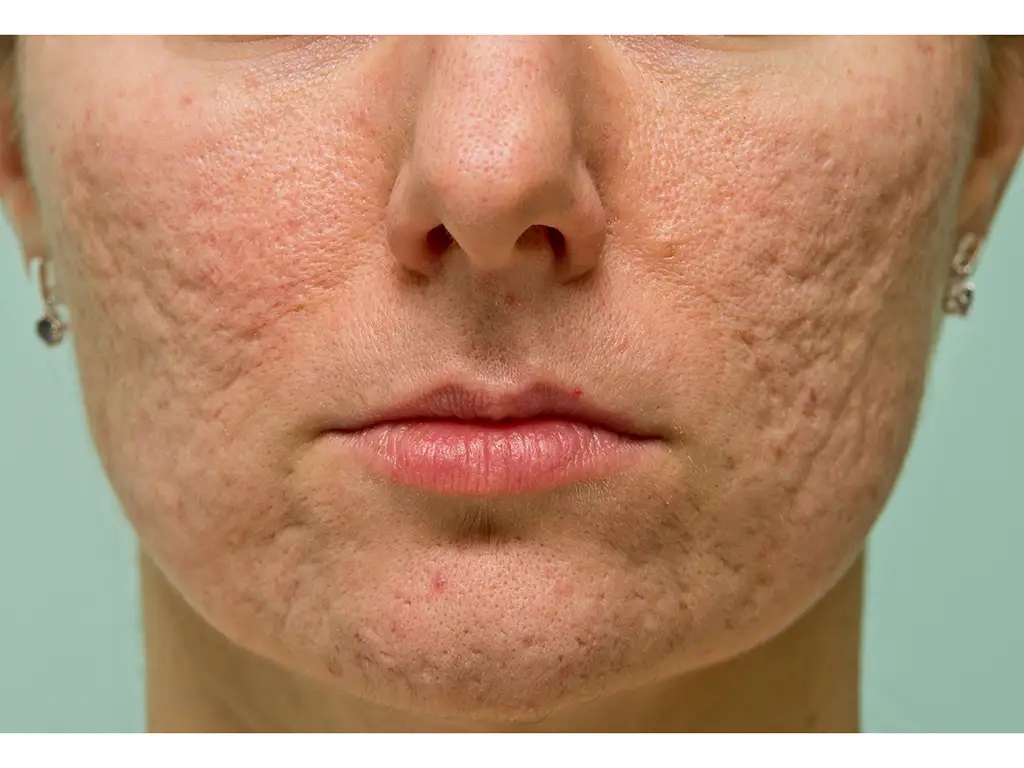What are acne scars?
Acne scars are visible marks or indentations left behind after active acne lesions heal. These scars can range from subtle discoloration to deep pits or raised bumps on the skin. Many people seek acne scar removal options to improve their skin’s appearance and regain confidence.
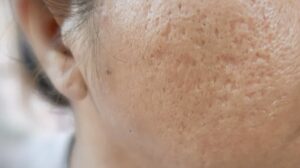
What causes acne scars?
Acne scarring occurs when inflamed acne lesions damage the skin tissue and disrupt the healing process. Several factors contribute to scar formation, including:
- Picking or popping pimples: This can push bacteria and debris deeper into the skin, leading to increased inflammation and permanent damage.
- Severe or cystic acne: Deeper breakouts like nodules and cysts are more likely to cause scarring.
- Delayed or no treatment: Untreated or poorly managed acne can lead to long-term skin damage.
- Genetics and skin type: Some people are more prone to developing acne scars due to hereditary factors.
What are the different types of acne scars?
There are several types of acne scars, each requiring a tailored treatment approach:
- 1. Atrophic Scars (Depressed Scars)
These are the most common scars resulting from collagen loss during the healing process. Subtypes include:- Ice pick scars: Narrow and deep holes that resemble puncture wounds.
- Boxcar scars: Broad, rectangular depressions with sharp edges.
- Rolling scars: Wavy or undulating skin texture caused by bands of scar tissue.
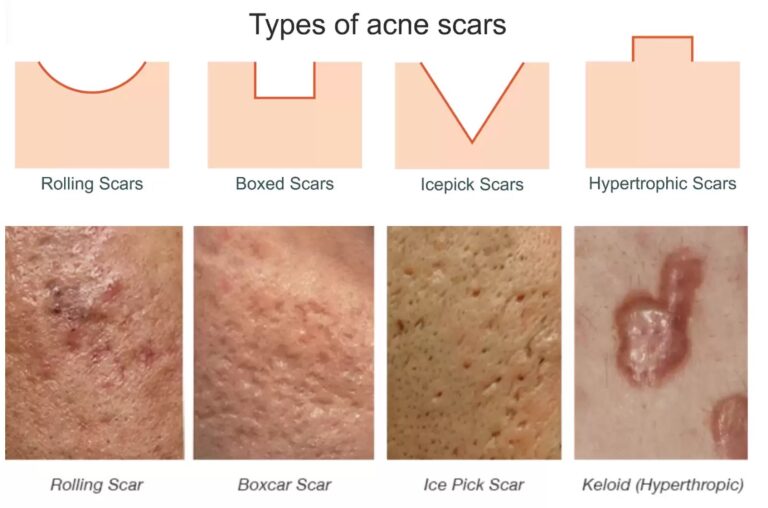
- Hypertrophic and Keloid Scars (Raised Scars).
These scars occur when the skin produces excess collagen during healing. They appear as thick, raised bumps, often seen on the back, shoulders, or jawline
How can acne scars be treated?
The best acne scar treatment depends on the type, depth, and location of the scars. Here are some highly effective and dermatologist-recommended options:
- Laser Treatment for Acne Scars
- Fractional CO2 Laser or Er:YAG laser resurfacing targets scarred tissue while stimulating new collagen growth.
- Helps reduce scar depth, smooth skin texture, and improve overall tone.
- Effective for both depressed acne scars and post-inflammatory hyperpigmentation (PIH).
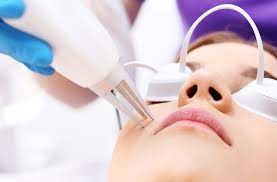
- Microneedling (Collagen Induction Therapy)
- Uses fine needles to create controlled micro-injuries that stimulate collagen and elastin production.
- Minimally invasive and effective for ice pick scars and textural irregularities.
- Often combined with PRP (platelet-rich plasma) for enhanced results.
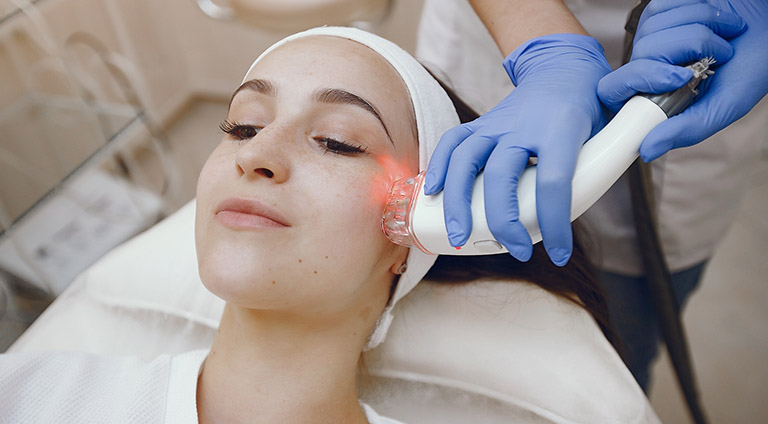
- Chemical Peels
- Exfoliates the outer layer of skin and promotes regeneration.
- Effective for mild acne scars, hyperpigmentation, and uneven skin tone.
- Medical-grade peels like TCA or glycolic acid are typically used under professional supervision
- Dermal Fillers
- Fill in atrophic acne scars, such as boxcar or rolling scars.
- Temporary but immediate improvement in skin smoothness.
- Hyaluronic acid-based fillers are most commonly used.
- Subcision
- A minor surgical procedure that loosens the fibrotic strands pulling down scar tissue.
- Particularly effective for rolling scars.
- Microdermabrasion and Dermabrasion
- Non-invasive exfoliation techniques that improve skin texture and clarity.
- Best for superficial acne scars and discoloration.
What are the benefits of laser treatment for acne scars?
Laser treatments are among the most popular acne scar treatments because they:
- Stimulate collagen production to naturally fill in and smooth out scars.
- Reduce pigmentation, redness, and uneven skin tone.
- Improve overall skin texture, making scars less noticeable.
- Offer long-term improvement with minimal downtime (especially in non-ablative laser therapy).
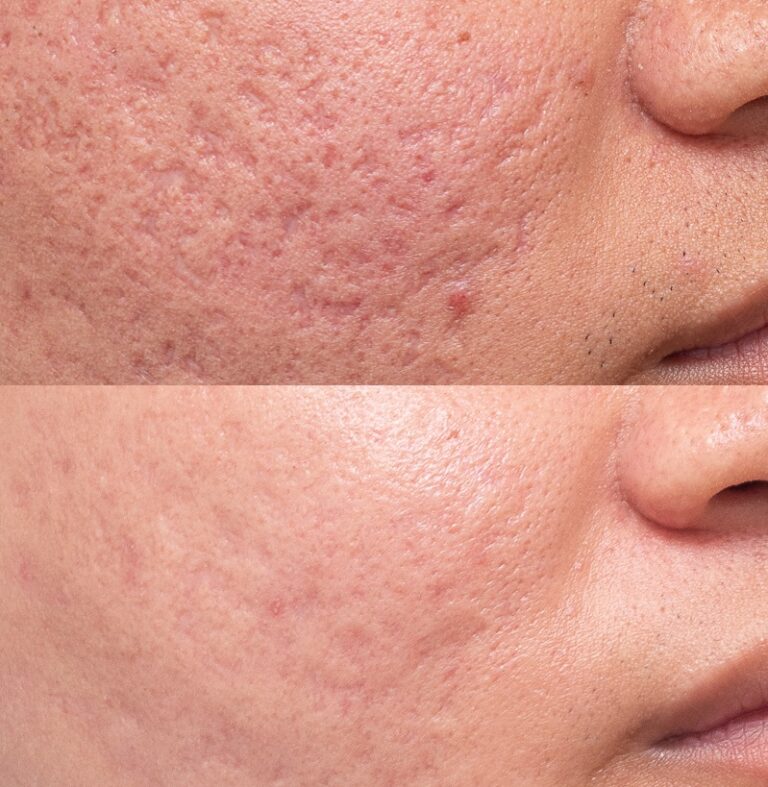
Can acne scars be prevented?
Although not all acne scars are preventable, you can reduce your risk with early intervention and proper skincare:
- Do not pick or squeeze pimples, as this increases the risk of deep scarring.
- Start acne treatment early, especially for moderate to severe breakouts.
- Use sunscreen daily to prevent hyperpigmentation and worsening of existing scars.
- Maintain a consistent skincare routine for acne-prone skin, using noncomedogenic products.
How do I choose the best treatment for my acne scars?
To find the most effective acne scar treatment, consult with a dermatologist. They can:
- Identify your scar type and severity.
- Recommend a customized treatment plan combining multiple procedures if needed.
- Monitor your progress and minimize side effects.

